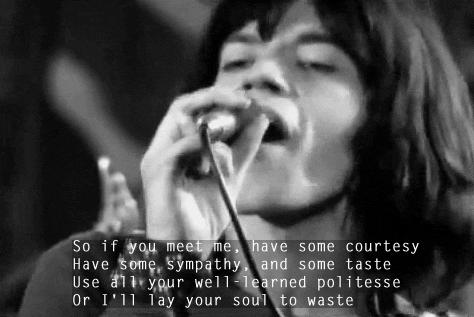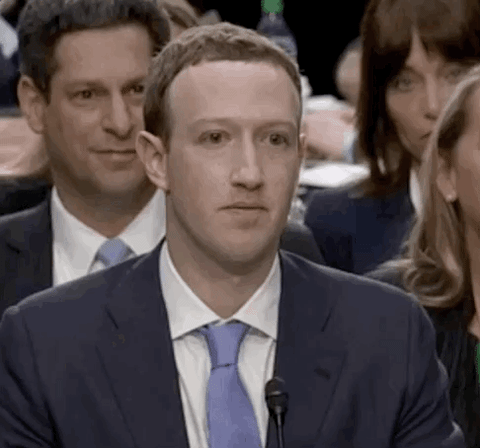Steve is a recovering public health scientist and academic. He is a Terry Pratchett fanatic (which explains a lot when you know him). He loves Dr. Who and can now watch almost every episode from the sofa not behind it. He has the great good fortune to be the COO of Bright and work with this amazing team. He has travelled a lot often to places with dangerous diseases. He thinks this was fun.
I know that the subtitle of this article is a very odd thing for someone in a social media company to say because obviously, we do want you to use our network and enjoy it. But bear with me, I think you’ll see why I have no choice but to call it what it is, and possibly if we acknowledge the problem, we can fix it.

I am a biologist. It’s a fact. It’s built into me. I loved all the science and technology subjects at school, but I am first and foremost a biologist. The living world is truly remarkable, and I needed to understand the biology of why things happen. It doesn’t matter if it’s the power that allows an oak tree to pump tons of water 20 metres straight up or what drives people to seek those “Likes” so desperately.
Join the Waitlist
Humans are, after all, big bags of molecules floating in water, kept together by lipid membranes and other molecules. We are a marvel of evolution because although we are big watery bags, we can walk, think, speak, and plan. But for all our ideas about free will, we are very much at the mercy of the molecules inside us. For example, half of all human cancers involve mutations in the single gene coding for the innocuously named p53. Similarly, despite our obsession with freedom and free will other molecules called neurotransmitters have dramatic effects on our mood and behaviour.
Let us think for a moment about being outside on a hot sunny day, perhaps we are gardening, and we go inside and grab a nice long cold drink of water. It makes us feel good. Or rather, the reward system in the brain gives us a little burst of a very potent molecule called dopamine. Dopamine helps us stay alive by reinforcing normally positive behaviours. So, when we take that cold water reward, we get a tiny drop of pleasure, and if we eat when we are hungry, we get a slightly bigger reward. Or, and this is the biggie, a huge pleasure reward when we have sex because nothing is more important than the continuation of the species.
Dopamine doesn’t just give us pleasure after we take a reward. It seems to be even better at creating desire. It signals when we see rewards are present. It motivates us to seek rewards, promotes exploration and learning to find more rewards, and helps memory formation about rewards. Dopamine is essential. Animals who can’t make dopamine or lack the receptors for it on their nerve cells are immune to Pavlovian conditioning because they can’t associate the reward with the stimulus. Dopamine deficient mice will die soon after birth because they just won’t eat properly. This system has served us well. Not only have we survived as individuals, but we are the dominant lifeform on the planet. It is proof that the carrot is more potent than the stick.
But of course, we are humans, so if there is something good, we will try and find ways to get more of it. The search for extra doses of dopamine causes humans to engage in harmful behaviours and seek damaging rewards. Drug addiction is a chronic, relapsing disease of the brain, and most addictive drugs cause increases in dopamine release in the brain. So, dopamine is critical in drug addiction due to reward mechanisms in the midbrain.
BUT, It isn’t just drugs that can manipulate our behaviour by exploiting dopamine. Hyperpalatable foods (those sugary, starchy, fatty, and salty morsels everyone loves) hijack the dopamine system in the same way as addicting drugs do. The brains of rats fed hyper-palatable foods for 2-weeks display the same structural changes as if cocaine was ingested. But that’s not all. The Dopamine release becomes greater in anticipation of the reward than it is on receiving it. Driving consumption even when you’re don’t need the reward. Indeed, when dopamine constantly floods the brain, the number of pleasure receptors it binds to is markedly reduced, leading to the drive to seek greater and greater reward quantities to feel the same pleasure.
I hear you exclaim, that’s awful, Steve, but what does it have to do with social media? Oh, my sweet summer child, EVERYTHING! Because one of the best ways to stimulate dopamine release is through small cues, bits of information and unpredictability, just like social media. Researchers found that it is harder to resist checking social media or email than to resist the temptation of alcohol and drugs. Furthermore, they claimed that even though sleep and sex are stronger urges, people are more likely to give in to cravings to use social media.

The device in your pocket becomes your own, very personal drug dealer. How often have you seen colleagues or family around a table unable to resist the vibrating notification of their phones? How often have you been the victim of phantom vibration syndrome, which is the feeling your phone is buzzing when it’s not?
So social media is addicting. Why is it a deal with the Devil? Well, the Devil, as I understand it gives you what you want in return for your soul. While you might not have signed any contracts with suspicious-looking fiddle players recently, you have probably LIKED something on social media. The big social media companies are very, very good at tracking everything you do online. You probably shared your relationship status, primary school, high school, university, hometown and identified links with family and friends within minutes of setting up your Facebook account. Something you would baulk at with other service providers.
Even if you set those details to private, Meta knows, and its algorithms hunger for your data and are very good at drawing conclusions about you from these snippets of data. Researchers Stillwell, Yu and Kosinski showed in 2015 that by analysing as few as “10 Likes”, their software could evaluate your personality as well as a co-worker, with “70 Likes” it was about as accurate as a friend, and with 300 it was more successful at predicting behaviour than a spouse.

Of course, you share more than just “Likes” with Meta and its ilk. You share photos of you and your cat. How you are feeling and what you’re doing, through statuses. Where you are and where you are going by checking in. But its reach stretches well beyond its app into other apps, websites, and services that you use on your devices, even logging the WIFI networks your device connects to. Four of the top 5 mobile apps, all having more than 1.2 billion active users, belong to Meta, giving the company unprecedented ability to reach into the minds of billions of global social media users.
But what you choose to share or like is not the end game. Facebook from a social media network into a “metaverse company” in the next five years. Despite getting people addicted to their platform, they don’t now believe that we should interact through glowing rectangles. They want you to live, work, and play inside their ‘metaverse’ created using artificial reality. Why are they interested in doing this? It’s hard to believe it’s altruism. As Verity McIntosh told the BBC
“Now it's not just about where I click and what I choose to share; it’s about where I decide to go, how I stand, what I look at for longest, the subtle ways that I physically move my body and react to certain stimuli. It's a direct route to my subconscious, which is gold to a data capitalist.”
Zuckerburg's announcement of the Metaverse is just like the Bond villain explaining his evil plan to the hero. Although, in this case, he doesn’t expect us to die, he expects us to comply and allow us to track and categorise us using millions of bits of data the system will collect every time we do anything. He is telling us not just because he doesn’t think we can stop him but because he thinks this announcement alone will make him even richer than ever as investors flock to buy a piece of his soul reaping machine.

In Part Two, we will look at the role of some other interesting neurotransmitters in how the current crop of social media companies turn our biology against us and make it work for them. We will also look at how new social media like Bright is working to break this Faustian bargain and provide fun and engaging social experiences without stealing your souls. Let's start by dragging the behaviour of the big players into the light and maybe then we can see them for what they are and hold them accountable.
Join the Conversation
Join the waitlist to share your thoughts and join the conversation.
Steve Jones
Steve is a recovering public health scientist and academic. He is a Terry Pratchett fanatic (which explains a lot when you know him). He loves Dr. Who and can now watch almost every episode from the sofa not behind it. He has the great good fortune to be the COO of Bright and work with this amazing team. He has travelled a lot often to places with dangerous diseases. He thinks this was fun.
.png)